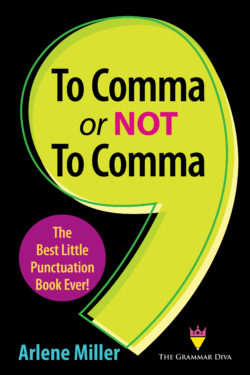Words like anyway (any way), everyday (every day), and others can either be one word of two depending on how they are used. Many times I see these words  written as one word when they should be two. So what is the difference, and how do you know?
written as one word when they should be two. So what is the difference, and how do you know?
awhile/a while – This one is tricky. If you put a preposition before it, use two words: a while, which is a noun. Awhile is an adverb.
I can stay for only a while. He will be here in a while.
Come sit here awhile.
anyway/ any way – With many of these words, you can tell which one to use by seeing if you would pause between the parts of the word. Any way is an adjective and a noun. Anyway is an adverb.
I can go anyway. Who cares, anyway?
Is there any way you can take my place at the meeting? I will get there any way I can.
sometime/some time/sometimes – Some time is a noun and an adjective. Sometime and sometimes are adverbs.
I hope you have some time to help me with this.
Please come visit sometime.
Sometimes I go to the beach on weekends.
any time/ anytime – Any time is a noun and an adjective. Anytime is an adverb.
I don’t think I have any time to do laundry today.
Come visit anytime. You can get these chores done anytime.
every one/everyone – Everyone is an indefinite pronoun. Every one is a pronoun and an adjective.
Every one of you should be studying your math. I frosted every one of these cupcakes.
Everyone is taking the bus to the fair. Hello, everyone!
any one/anyone – Any one is a pronoun and an adjective. Anyone is an indefinite pronoun.
Did any one of you see the cat? Any one of you can try to fix the printer.
Is anyone there? I didn’t see anyone come in.
some thing/something/some things – Some thing and some things are nouns and adjectives. Something is an indefinite pronoun. Actually some thing and something are the same, so use something. Because some implies more than one, we wouldn’t use some thing (but we would use some things) .
Something is in my eye. I heard something about you from my brother. (Some thing would mean the same thing, so we just use something.)
Some things are bothering me about this plan. I have some things for you to buy.
everyday/every day – Every day is a noun and an adjective. Everyday is an adjective.
I swim every day at 6 p.m. Every day is a fresh start.
My swimming program is an everyday thing.
GRAMMAR DIVA NEWS
WRITERS WORLD
All writers and those interesting in writing, editing, publishing, design, marketing of books. The Bay Area Independent Publishers Association (BAIPA) invites you to Writers World on Saturday, September 8 at Dominican College in San Rafael, Calfornia. There will be vendors, a Q&A session, and many speakers (of which I will be one). For more information, go to the BAIPA website.
Sign up today by midnight for early bird prices.
Me at the Sonoma County Fair selling my books. A fun time! .




Great post!
Good idea from Gordon Burgett
I have looked and looked through the AP Stylebook for some of these business terms and misused words., but to no avail.
Yes, it will take research; I see it as a regularly or sequenced volume or as a blog first.
Sorry, the last sentence is just the “teacher in me.”
I will think about it, but I would like some ideas as to the types of words and phrases you mean — from you and Gordon!
Yes, one of my pet hates. I especially notice ‘pick up’ and ‘pickup’, ‘back up’ and ‘backup’. In each case the former is a verb: “Pick up your book,” “back up your computer file.” The second is a noun, “the pickup truck,” “the data backup.”
Good post
Yes, let’s not even get into those! I see them all the time when I am copyediting. Thanks for the comment.
Inter esting. But something else came to mind leaving BAIPA yesterday. Why not put together a book, small for desk use, good looking, nothing out of context , something like the 500 or 800 or 8 million words/phrases, and combinations every successful businsseman (or a teacher or p.r. prepper, etc.) needs to know? I know there are things like that but find a different organization or structure and make it theirs.
To truly niche it put in 500 most important any business person must now and 250 more that every (dentist, public speaker, salesperson) must have at hand.
If this makes any sense, it’s yours. If you have questions, just email .
That is a great idea….but seems as if it would take a lot of research! I did get as far as doing a book on confusing words, but it is not really a business book. I will think about that! Thank you!
Gordon- Could you give me some examples of the types of words and phrases that you mean?
You left off one that has always tripped me up: anymore/any more. I think I understand, based on your explanations above, that if it’s used as an adverb it’s one word (I don’t care anymore that he dumped me) and if as an adjective/noun combination (She was too full to eat any more ice cream) it’s one. I’m sure you’ll let me know if I’m wrong!
Thanks for reminding me that I missed that one! I have written about that one somewhere. You are right. Any more is an adjective and another adjective, so it will be used to describe a noun, and anymore is an adverb. Your examples are perfect.
Another good one, Arlene! Sorry I missed working with you at the Fair.
Thanks, Thonie. Hope you had fun and success at the fair!